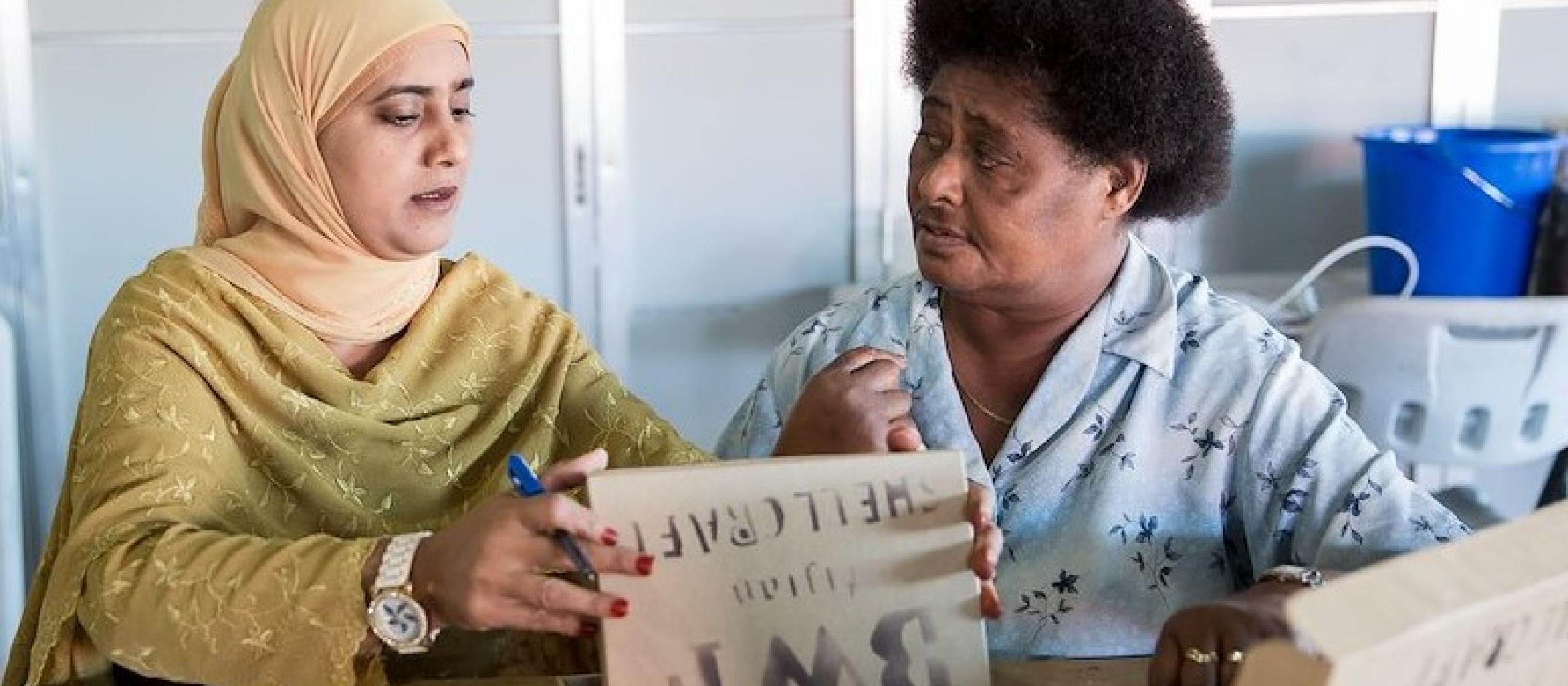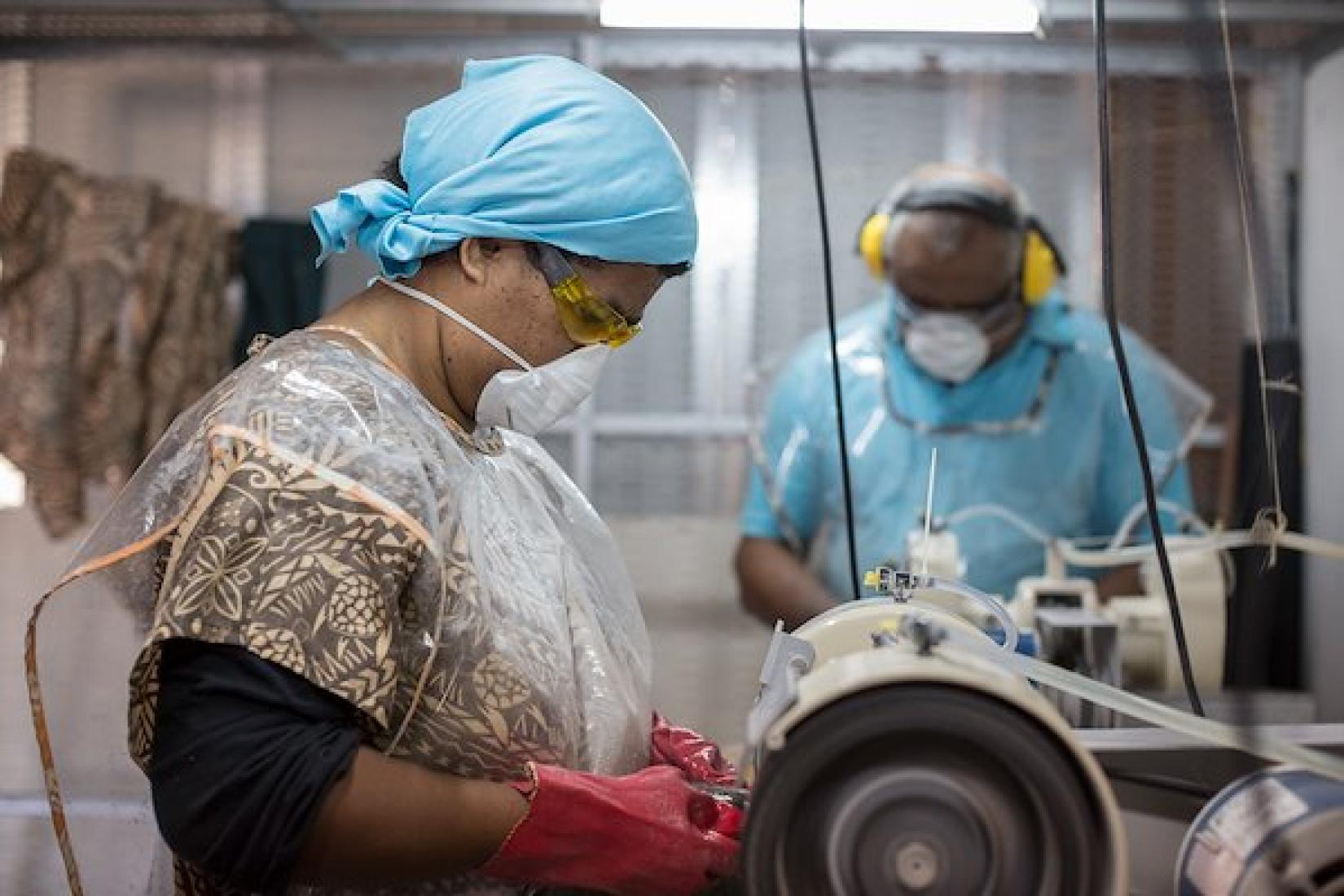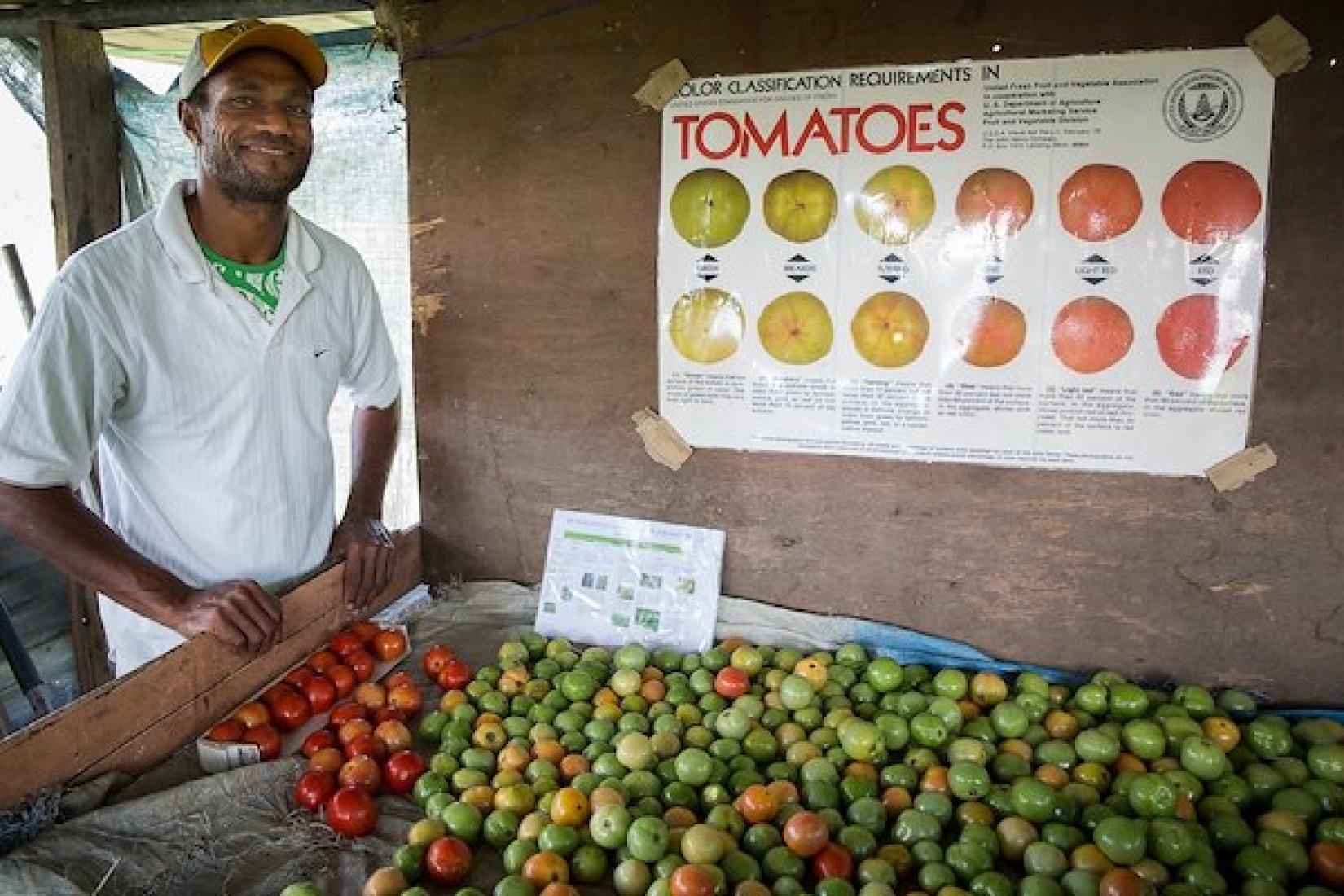PEARL & SEAWEED PRODUCTION IN THE PACIFIC ISLANDS
These four B4D projects were concerned with developing the pearl and seaweed industries in a number of partner countries including Fiji, Tonga, Papua New Guinea, Samoa and Kiribati. Of specific focus was the need to improve pearl husbandry techniques along the entire production line, along with opening up new opportunities via segmentation of the pearl industry. For seaweed, the project aimed at diversifying the activities and opportunities available to the industry in the Pacific Islands, and to make the local industry in each partner country more resilient to both external and internal changes. All four projects have now been completed and met their scientific milestones to ensure more developed and diversified local industries for harvesting pearled oysters and seaweed, with local fishers and their families being the key beneficiaries.
SUSTAINABLE AGRICULTURE IN WEST BENGAL AND BANGLADESH
This multi-country program focuses on managing the overuse of water resources in Bangladesh and the West Bengal of India to mitigate the impact of climate change for family farmers. The project, which commenced in 2016 and is due for completion in 2020, has four main impact pathways. First, working with NGOs to engage with, empower, and mobilise marginalised community segments, in particular women, landless, and tribal minorities. The second pathway entails drawing on initial findings to better target interventions or to ensure that agricultural intensification practices do not result in unintended consequences for marginalised households. The third impact pathway involves association with a number of key donor-funded programs and government initiatives. Lastly, the fourth pathway works with private sector boundary partners to build a framework that can be implemented to support rural communities. It is anticipated that this project will provide more socially inclusive and environmentally sustainable agricultural intensification in West Bengal and Bangladesh.
PACIFIC AGRIBUSINESS RESEARCH FOR DEVELOPMENT INITIATIVE (PARDI 2)
Running from 2017 to 2021, this four-year project builds on the Pacific Agribusiness Research for Development Initiative (PARDI), an earlier four-year project aimed at improving marketing opportunities and boosting agribusiness within the Pacific Islands. Focusing on Fiji, Tonga and Vanuatu, PARDI 2 aims to strengthen PARDI’s engagement with other ACIAR projects. The project will study why and how agribusiness developments have succeeded, document how they benefit community livelihoods, and investigate how to extend and make their economic benefits more inclusive and sustainable. The project also aims to identify and overcome constraints and bottlenecks in value and supply chains for primary products. Within five years of its conclusion, PARDI 2 is expected to have developed the capacity for growing at least ten existing agribusinesses and creating at least ten new agribusinesses, with at least half operated or managed by women. The project also hopes to have shown enhanced benefits that flow to rural communities from agribusiness developments.
ACIAR PROJECTS:
- FIS/2014/103: Pearl livelihood development in Fiji;
- FIS/2006/172:Winged oyster pearl industry development in Tonga;
- FIS/2009/057: Pearl industry development in the western Pacific;
- FIS/2010/098: Diversification of seaweed industries in Pacific island countries;
- LWR/2014/072: Promoting socially inclusive and sustainable agricultural intensification in West Bengal and Bangladesh;
- AGB/2014/057: Pacific Agribusiness Research in Development Initiative Phase 2 (PARDI 2);
- CSE/2011/077: Sustainable and resilient farming systems intensification in the Eastern Gangetic Plains (SRFSI)






